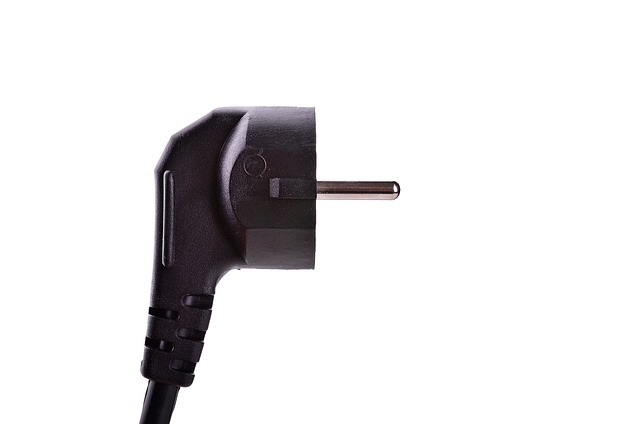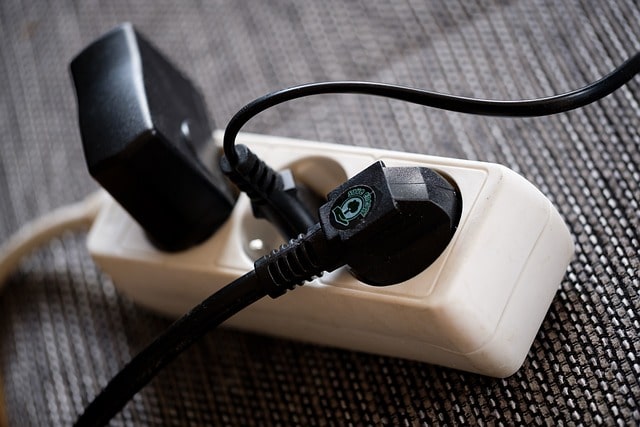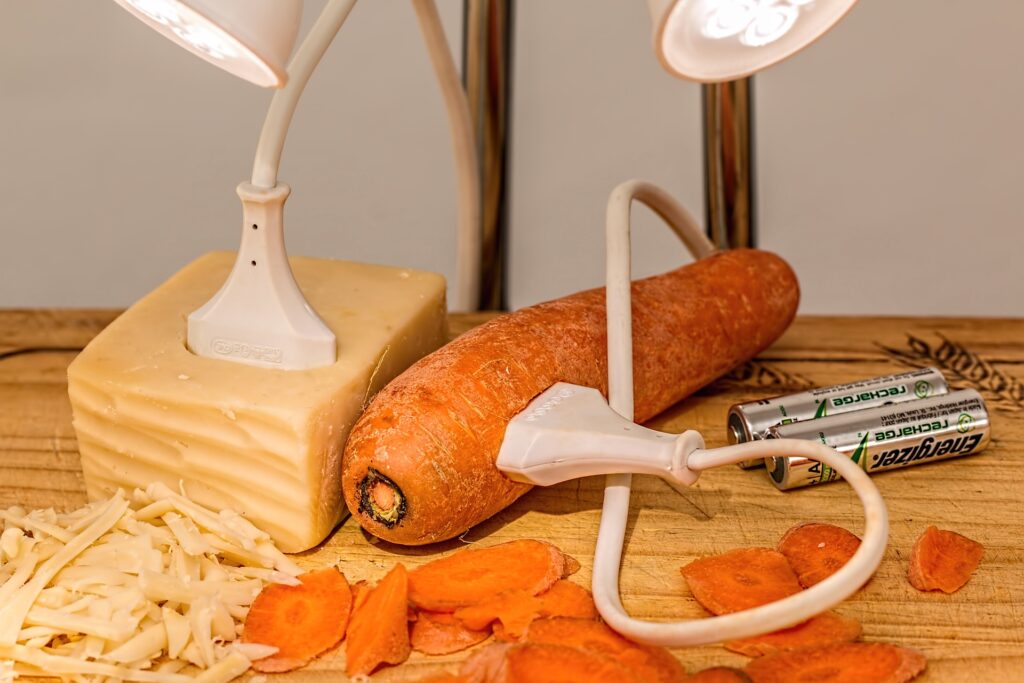Imagine this: you’re in a rush, hungry, and desperately craving a warm, delicious meal. Enter the superhero of modern kitchens—the microwave! It’s the ultimate time-saver, zapping your food to perfection within minutes. But here’s the twist: while you’re eager to unleash its magic, you find yourself pondering a crucial question—can you safely plug a microwave into an extension cord? Well, you are in the right place because we are about to reveal the shocking truth you need to know!
In modern households, the microwave has become an indispensable appliance, making meal preparation quicker and more convenient. However, when it comes to setting up the microwave in your kitchen, there might be some confusion about the best way to connect it to a power source.
This article explores the potential risks and benefits of using an extension cord for your microwave. Read on;
First things first, what is an extension cord?

Understanding Extension Cords
An extension cord is a flexible electrical cable equipped with plugs at both ends. Its primary purpose is to extend the reach of an electrical device when the nearest power outlet is not easily accessible. These cords come in various lengths and gauges, with different capacity ratings, depending on the intended use.
What are the Risks of Plugging a Microwave Into An Extension Cord?
While it might seem convenient to plug a microwave into an extension cord, doing so can pose some serious risks. Microwaves are high-powered appliances, and they require a significant amount of electricity to function properly. Some of the risks associated with using an extension cord include:
1. Overloading the Extension Cord
Microwaves are power-hungry appliances, requiring a substantial amount of electricity to operate efficiently. Standard extension cords may not be designed to handle the high-power draw of a microwave. Plugging the microwave into an extension cord that is not rated for its power requirements can lead to overheating and potential fire hazards.
2. Voltage Drop
Extension cords introduce resistance to the flow of electricity. The longer the cord or the thinner its gauge, the more resistance it creates. As a result, there is a voltage drop, which can negatively impact the microwave’s performance. Reduced voltage may cause longer cooking times or even damage the microwave’s internal components over time.
3. Fire Hazard
Overloading an extension cord with a microwave can cause the cord’s insulation to heat up excessively. This heightened heat can eventually lead to melting or even a fire. The combination of electrical resistance and high-power consumption is a recipe for disaster, putting your home and loved ones at risk.
4. Physical Hazards
If you plug a microwave into an extension cord, you may be putting yourself at risk of physical injuries. Long cords stretched across the floor are potential tripping hazards, especially in a busy and cluttered kitchen environment. Accidental tugs or pulls on the cord might also cause the microwave to fall, resulting in damage or injury.
5. Reduced Microwave Lifespan
The strain of operating on an inadequate power source can negatively impact the microwave’s internal components, shortening its overall lifespan. Frequent voltage drops or overheating may lead to premature wear and tear, ultimately requiring costly repairs or a replacement sooner than expected.
6. Code Violations
In some regions, electrical codes and safety regulations explicitly prohibit using extension cords for certain high-power appliances like microwaves. Violating these codes can not only jeopardize your safety but also result in legal consequences.
Recommended Solutions
Considering the potential risks, it’s best to avoid using an extension cord with your microwave. Instead, follow these alternative solutions for a safer and more efficient setup:
- Relocate the Microwave: If possible, try rearranging your kitchen to position the microwave closer to a dedicated power outlet. This eliminates the need for an extension cord altogether.
- Install New Outlets: If there are no outlets near the desired location for your microwave, consider hiring a licensed electrician to install a new outlet. This ensures the outlet is properly wired to handle the microwave’s power requirements.
- Use a Microwave Cart: Invest in a microwave cart with built-in electrical outlets. This solution provides a dedicated and safe power source for your microwave while also offering additional storage space.

What’s more: Safety Tips for Microwave Usage
Apart from avoiding extension cords, it’s essential to follow these general safety tips when using your microwave:
- Read the Manual:
Familiarize yourself with the manufacturer’s guidelines and safety instructions in the microwave’s user manual.
- Check for Damage
Regularly inspect the power cord and plug for any signs of wear or damage. If you notice any issues, have them repaired or replaced by a professional before use.
- Avoid Overloading Circuits
Ensure that the microwave shares an outlet with low-powered devices and is not on the same circuit as other high-energy appliances to prevent overloading.
- Cord Quality
Even if you choose to use an extension cord with the appropriate power rating, it’s crucial to ensure the cord is of high quality and in good condition. Cheap or damaged cords might not be able to handle the microwave’s continuous power demands, leading to potential hazards.
- Warranty and Insurance
If you decide to plug a microwave into an extension cord and encounter any electrical issues or damage, it’s essential to check your microwave’s warranty terms. Manufacturers often void warranties if their appliances are connected through extension cords. Additionally, using an extension cord in such a manner might complicate insurance claims in the event of an electrical accident or fire.
- Alternative Appliances
If relocating the microwave or installing new outlets is not feasible in your kitchen, consider using alternative appliances that consume less power. For instance, toaster ovens, electric grills, or slow cookers can be viable options for preparing meals without the need for a high-powered microwave.
- Professional Assessment
If you are uncertain about the electrical setup in your kitchen or the suitability of using an extension cord, consult a qualified electrician. They can evaluate your kitchen’s electrical capacity and provide safe, efficient solutions tailored to your specific needs.
Key Takeaway
It is not recommended to plug a microwave into an extension cord due to the potential risks involved. The high-power draw of microwaves can overload the cord, cause voltage drops, and lead to safety hazards. Instead, consider safer alternatives such as relocating the microwave, installing new outlets, or using a microwave cart. By prioritising safety and following recommended practices, you can enjoy the convenience of your microwave without compromising your well-being.
